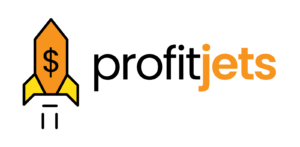The insurance industry thrives on precision and meticulous management, especially concerning finances. Accurate bookkeeping and accounting practices are the backbone of any successful agency, ensuring financial clarity, regulatory compliance, and, ultimately, sustained success. This comprehensive guide dives into essential bookkeeping and accounting tips for insurance agencies, empowering you to navigate the financial landscape confidently.
Common Accounting Mistakes and How to Avoid Them:
Insurance agencies, like any business, are susceptible to accounting errors. Here are some common pitfalls and how to mitigate them:
| Error | Impact | Solution |
| Inaccurate Chart or Accounts | Difficulty classifying transactions, leading to reporting errors | Develop a customized chart of accounts aligned with your agency’s unique needs, considering specific insurance industry niches. |
| Missing Documentation | Lack of support for transactions, making audits difficult and increasing the risk of fraud. | Maintain clear and concise documentation for all financial transactions, including invoices, receipts, contracts, and policy documents. |
| Untimely Data Entry | Backlogs and inaccuracies in financial records hinder timely reports and decision-making. | Implement a consistent schedule for recording transactions, ideally daily or weekly, and consider automated data entry solutions where feasible. |
| Infrequent Reconciliation | Potential discrepancies and undetected errors impacting financial accuracy and compliance. | Regularly reconcile bank statements, credit card statements, and other accounts to ensure accuracy and identify any discrepancies; aim for monthly or quarterly reconciliations, depending on transaction volume. |
| Inadequate Internal Controls | Increased risk of fraud and financial mismanagement, jeopardizing financial stability and regulatory compliance. | Implement robust internal controls, including segregation of duties (e.g., separate individuals handling cash receipts and disbursements) |
Optimizing Your Financial Management:
Now that we’ve established the foundation let’s explore actionable tips to optimize your bookkeeping and accounting:
- Invest in Specialized Software: Choose accounting software with features tailored for insurance agencies, such as premium tracking, commission calculations, policy management modules, and integration with claims processing systems. Consider popular options like AgencyBloc, Xactimate, and Applied Systems.
- Partner with a CPA: Consider engaging a Certified Public Accountant (CPA) with expertise in the insurance industry for comprehensive financial guidance, compliance support, and tax optimization strategies. Seek a CPA familiar with GAAP, SAP, and specific regulations applicable to your agency’s location and insurance lines.
- Embrace Automation: Utilize technology to streamline recurring duties such as inputting data, reconciling bank statements, and generating standard reports. This frees up valuable time and resources for your accounting team to focus on higher-level activities like financial analysis and strategic planning.
- Prioritize Regular Reporting: Develop a consistent and transparent financial reporting framework aligned with industry standards and regulatory requirements. Regularly generate reports like income statements, balance sheets, cash flow statements, and loss ratios to monitor your agency’s financial health, identify trends, and make informed decisions.
- Foster Collaboration: It is essential to promote transparency and teamwork among your accounting staff and other departments in your organization, including sales, underwriting, and claims. This ensures timely data exchange, prevents information silos, and fosters a culture of financial awareness across the organization.

Addressing Specific Challenges
- Reconciling Premium Reserves: Regularly reconcile premium reserves to ensure accurate accounting for unearned premiums and potential future claims. Develop a transparent reconciliation process and schedule, considering the volume and complexity of your insurance lines. Collaborate with your actuarial team if necessary for accurate reserve estimates.
- Maintaining Compliance with GAAP and SAP: Stay updated on the latest GAAP and SAP guidelines applicable to the insurance industry. This requires ongoing monitoring of regulatory changes and accounting pronouncements. Partner with your CPA or an accounting firm with insurance industry expertise to ensure compliance and avoid potential penalties.
- Cybersecurity Measures: Ensure the implementation of solid cybersecurity measures to safeguard your agency’s sensitive financial data from potential cyber threats. This involves frequently updating software and operating systems, utilizing robust passwords and multi-factor authentication, providing regular cybersecurity training to your employees, and planning to respond to a data breach. Consider cyber insurance for additional protection.
The Power of Outsourcing:
For some insurance agencies, outsourcing bookkeeping and accounting services can be a strategic decision offering several benefits:
- Reduced Costs: Access expertise without the need to hire and train in-house staff, potentially saving on salaries, benefits, software costs, and office space.
- Improved Efficiency: Leverage the expertise and resources of a dedicated accounting firm, ensuring timely and accurate financial reporting, streamlined processes, and access to specialized software.
- Enhanced Compliance: Minimize the risk of non-compliance with complex regulations by partnering with experienced professionals in the insurance industry and familiar with GAAP, SAP, and specific industry requirements.
- Focus on Core Business: Allow your team to concentrate on critical business operations, including acquiring clients, managing policies, and building relationships by freeing up their time and resources.
- Scalability: Easily scale your accounting services up or down as your business needs evolve without the burden of hiring and managing additional staff.
Making the Outsourcing Decision:
Before outsourcing, carefully evaluate your agency’s needs, budget, and internal resources. Consider factors like the complexity of your operations, data security concerns, and the desired level of control over your financial data. Conduct thorough research on potential outsourcing partners, evaluating their experience, expertise, compliance record, and client references.
Conclusion:
Effective bookkeeping and accounting services are a financial necessity and a strategic investment for any insurance agency. By following the suggestions and tactics mentioned in this manual, dealing with particular obstacles, and contemplating the probable advantages of subcontracting, you can attain:
- Enhanced financial transparency and control: Gain clear insights into your financial health, enabling informed decision-making and improved financial performance.
- Improved regulatory compliance and risk mitigation: Minimize the risk of penalties and regulatory sanctions by adhering to GAAP, SAP, and other industry regulations.
- Streamlined operations and optimized cash flow: Enhance efficiency through automation, accurate financial reporting, and effective cash flow management.
- Greater efficiency and productivity: Free resources so Your team’s attention can be directed towards essential business tasks and building solid client relationships.
- Increased profitability and competitive advantage: Achieve sustainable financial success and gain a competitive edge by leveraging robust financial management practices.
Remember, seeking expert guidance from a qualified CPA or a reputable accounting firm like Profitjets with insurance industry expertise can significantly elevate your financial management and unlock your agency’s full potential. By investing in accurate and efficient bookkeeping and accounting services, you can confidently navigate the ever-changing insurance landscape and achieve long-term success.











